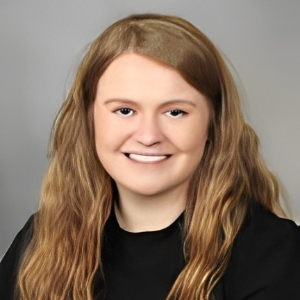Title : Rare fungal infection in chronic lymphocytic leukemia: Scopulariopsis as a clinical challenge
Abstract:
A 59-year-old male with a history of relapsed refractory Chronic Lymphocytic Leukemia and associated hypogammaglobulinemia presented to our medical service with neutropenic fever, a skin lesion, and progressive pulmonary infiltrates.
He had been evaluated for cough and neutropenic fever 7 weeks prior and was treated for Aspergillus and had interval improvement. He was receiving chemotherapy with rituximab, etoposide phosphate, vincristine sulfate, cyclophosphamide, and doxorubicin (R-EPOCH), in addition to ibrutinib. Antimicrobial prophylaxis regimen included voriconazole, trimethoprim-sulfamethoxazole, and acyclovir. Computed tomography (CT) of the chest demonstrated bilateral multifocal areas of consolidation and nodularity.
Pertinent work-up included negative bacterial and fungal cultures from blood and a bronchoalveolar lavage (BAL) specimen, negative serum and BAL Aspergillus antigen, negative pneumocystis polymerase chain reaction and cryptococcal antigen from BAL, negative serological testing for endemic fungi, and a serum (1,3)-β-D-glucan of 124 pg/mL (reference range < 60 pg/mL). After five days of broad-spectrum antimicrobial therapy there was no clinical or radiographic improvement. The patient was started on liposomal amphotericin B and transitioned to posaconazole after initial improvement. CT chest two weeks into treatment demonstrated improving infiltrates. Treatment was switched to caspofungin given concern for possible a possible interaction between chemotherapy and posaconazole. He remained profoundly neutropenic during this time-period.
On arrival to our institution, examination was notable for fever (temperature 38.2C), crackles in the right-lung base, and a new papular lesion on the right parietal scalp (Figure 2). CT Chest demonstrated new bilateral nodules and ground glass opacities. A diagnosis of disseminated Scopulariopsis sp. infection was confirmed via matrix-assisted light desorption ionization-time of flight mass spectrometry. The patient was escalated to combination therapy with liposomal amphotericin B and caspofungin. Terbinafine was subsequently added. In managing Scopulariopsis infections, clinicians face numerous challenges due to the rarity of the condition and its propensity for affecting immunocompromised individuals. Effective management requires a multi-faceted approach, beginning with a high index of suspicion for fungal infections, especially in patients with hematologic malignancies, solid organ transplants, or those receiving.
Repeat bacterial and fungal blood and sputum cultures were negative. Serum (1,3)-β-D-glucan was 71 pg/mL, and serum aspergillus antigen remained undetectable. Bronchoalveolar lavage (BAL) was performed, and after three days of incubation there was growth of a filamentous fungus on fungal cultures. Subsequent fungal cultures obtained from a biopsy of the papular lesion grew the same organism.
In managing Scopulariopsis infections, clinicians face numerous challenges due to the rarity of the condition and its propensity for affecting immunocompromised individuals. Effective management requires a multi-faceted approach, beginning with a high index of suspicion for fungal infections, especially in patients with hematologic malignancies, solid organ transplants, or those receiving immunosuppressive therapies. Early diagnosis is crucial, relying on a combination of clinical suspicion, imaging studies, and microbiological testing, including fungal cultures and microscopy to identify characteristic features such as dark brown colonies and septate hyphae.



